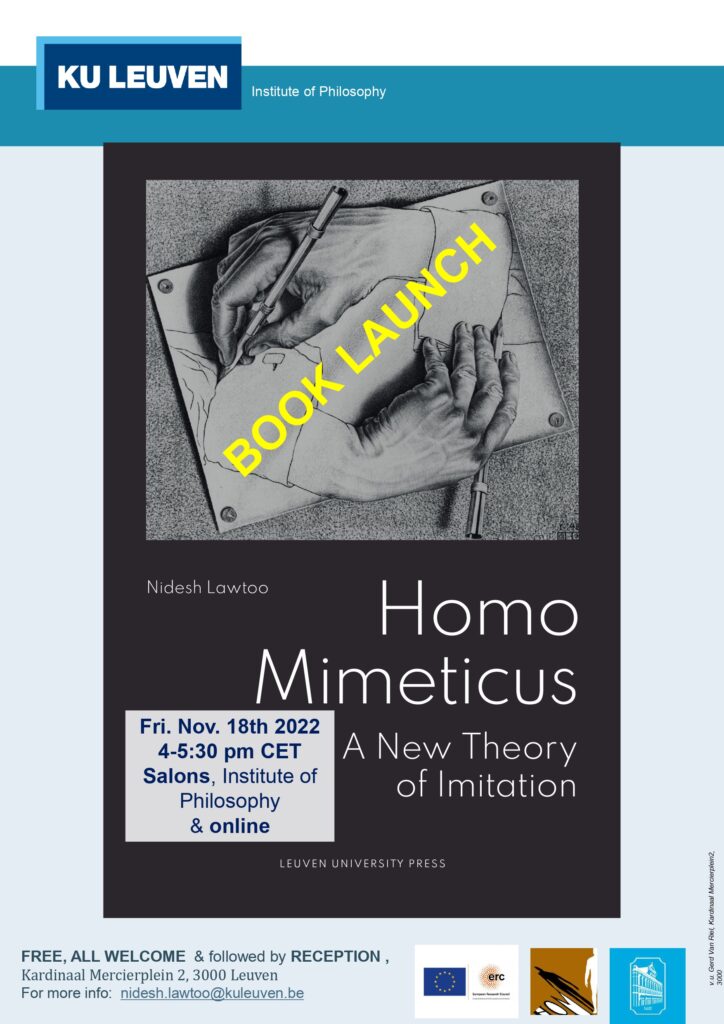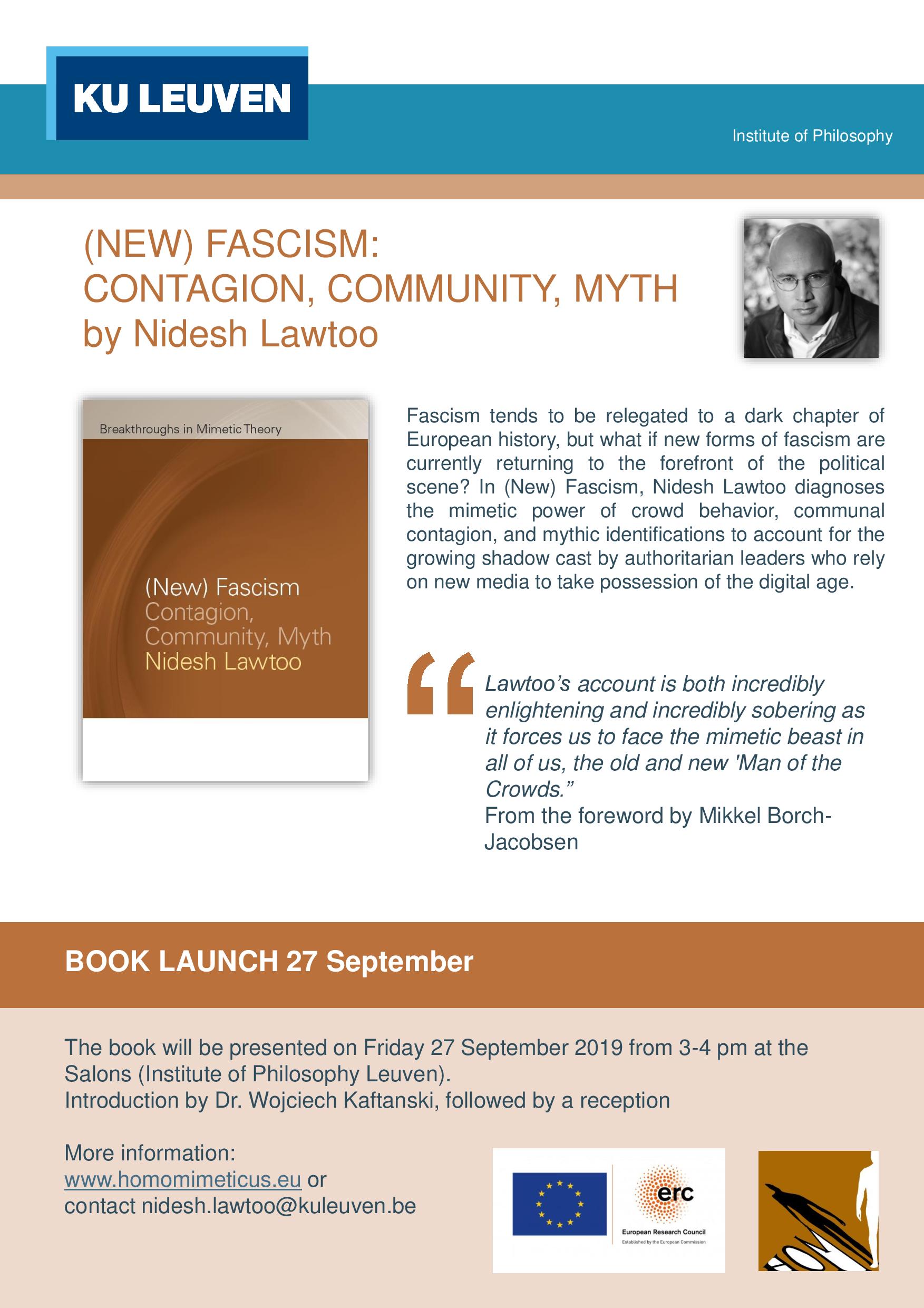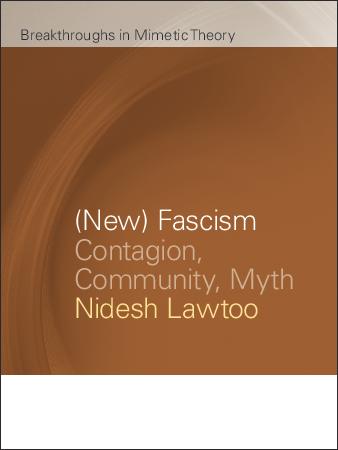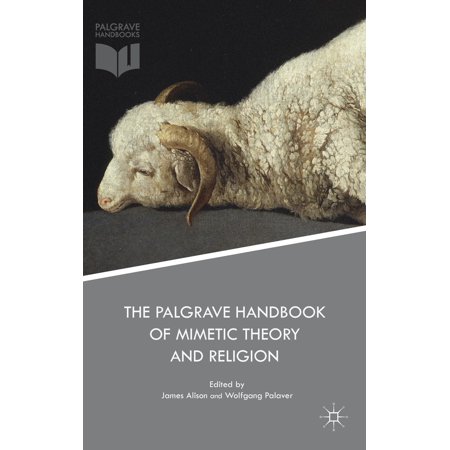
5 years ago the HOM project promised a new theory of imitation to face some of the main challenges of the present. Here it is, with Leuven UP! In this book launch, HOM/GM team members Niki Hadikoesoemo, Marina García-Granero and Giulia Rignano talk with Nidesh Lawtoo about the main insights and takeaways of Homo Mimeticus: A New Theory of Imitation (Freely available Open Access here). All are welcome, reception to follow, and on hybrid mode More information including Zoom link here.



